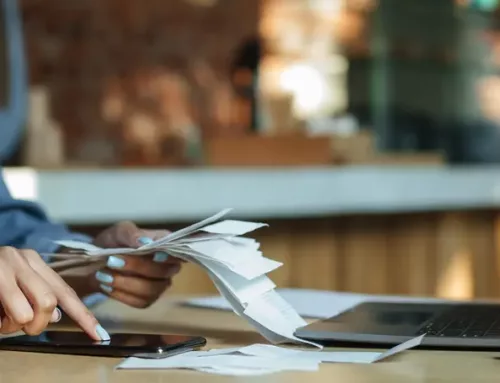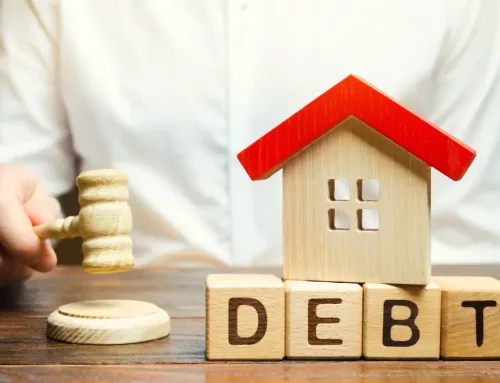The bankruptcy code presents various types of bankruptcy, but if your intent is to file for personal bankruptcy, the bankruptcy chapter for you is either 7 (liquidation) or 13 (reorganization). If you want to be able to keep as much property as possible, the Chapter 13 bankruptcy process is the better option.
Under Chapter 13, filing for bankruptcy means that you have to come up with a repayment plan that is acceptable to the bankruptcy court. Bankruptcy proceedings involve adhering to this reorganization plan, which must reflect your best effort in attempting to pay your debts, in order to receive a bankruptcy discharge. This best effort is manifested in the use of all your disposable income in paying your non-priority unsecured creditors.
Some Bankruptcy Terms Explained
If you intend to file for bankruptcy, you should understand the terms used in the process.
- Disposable income – This pertains to the funds you’re left with after you’ve paid off basic necessities and have done your monthly payments on priority debts and secured debts
- Priority debts – These are unsecured debts that are more important such as taxes and child support. They understandably receive special treatment.
- Secured debts – These are debts that have certain assets attached to them as in the case of mortgage payments. Another example of a secured debt is a car loan.
- Non-priority unsecured debts – These are obligations that have less dire consequences when left unpaid, such as medical bills and credit card debt.
Calculating Non-Priority Unsecured Debt Payments
 To calculate your monthly payment on non-priority unsecured debts, your main determination would be figuring out where your income falls in relation to your state’s median income. You need to average your monthly income in the six months before your bankruptcy filing and then compare this average with the state median established for households as big as yours.
To calculate your monthly payment on non-priority unsecured debts, your main determination would be figuring out where your income falls in relation to your state’s median income. You need to average your monthly income in the six months before your bankruptcy filing and then compare this average with the state median established for households as big as yours.
If your income is below the state median, not much of your non-priority unsecured debts would be covered by your best effort. In this case, it’s very likely that you would complete the repayment plan, which wouldn’t be based on disposable income, but on your household budget instead, and arrive at a bankruptcy discharge in three years instead of the five year maximum.
If your income is above the state median, deduct your basic expenses and payments for priority and security debts from your regular income to get your disposable income. You can base the calculation of your living expenses on your actual expenses or on national or local standards. All leftover funds after the deduction are your disposable income. You are to use it for five years to pay your unsecured creditors as the court orders.
Not for Debtors with Substantial Assets
Even if you’re bankrupt, it’s still possible for you to own high-value assets. Since these can be liquidated to pay off creditors, declaring bankruptcy may not be the most suitable debt relief solution. You can likely get out of debt without filing a bankruptcy petition. Also, a bankruptcy judge would be concerned that filing Chapter 13 is not your best effort to pay your debts since creditors would receive less from the payment plan than from the Chapter 7 process to liquidate your assets. As previously mentioned, filers can keep non-exempt property in a Chapter 13 bankruptcy case, but not in bankruptcy filed under Chapter 7.
The court will review the value of non-exempt property you own alongside your total priority debt amount and disposable income. It will ensure that your creditors are paid the bigger amount so that filing Chapter 13 doesn’t end up giving you a windfall. This is something you could avoid by filing Chapter 7.
Declaring bankruptcy under Chapter 13? Contact a West Virginia Bankruptcy Attorney Today!
If you’re considering filing bankruptcy to address your financial problems, Chapter 13 is your logical option if you plan to pay your creditors in order to keep your property. Chapter 13 bankruptcies get filers’ debts discharged as long as they fulfill the terms of their approved payment plan. It’s best that you consult a bankruptcy lawyer when you craft this plan.
The service of bankruptcy lawyers is invaluable in Chapter 13 bankruptcy cases, especially in getting plans to make payments to debt collectors approved by bankruptcy courts. A lawyer who specializes in bankruptcy law can provide appropriate legal advice as well as assistance in times of financial distress. Should bankruptcy be the most viable solution, you’ll be provided guidance in filling out bankruptcy forms and navigating the bankruptcy system until you get a bankruptcy discharge.
For a free legal consultation, call us at Thomas E. McIntire & Associates, L.C. and speak with one of our experienced West Virginia bankruptcy attorneys.





